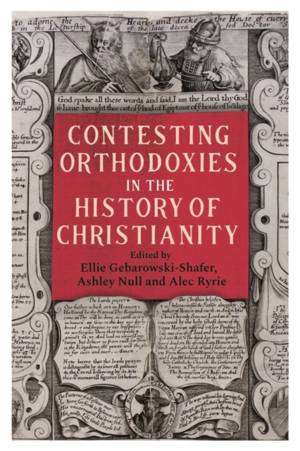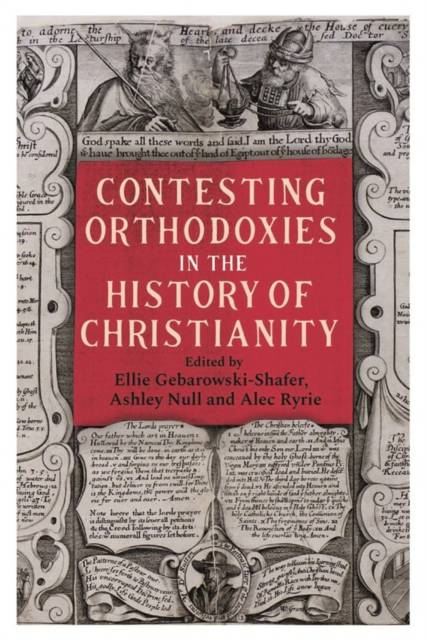
- Afhalen na 1 uur in een winkel met voorraad
- Gratis thuislevering in België vanaf € 30
- Ruim aanbod met 7 miljoen producten
- Afhalen na 1 uur in een winkel met voorraad
- Gratis thuislevering in België vanaf € 30
- Ruim aanbod met 7 miljoen producten
Zoeken
Contesting Orthodoxies in the History of Christianity
€ 257,95
+ 515 punten
Omschrijving
Examines the pursuit of orthodoxy, and its consequences for the history of Christianity. Christianity is a hugely diverse and quarrelsome family of faiths, but most Christians have nevertheless set great store by orthodoxy - literally, 'right opinion' - even if they cannot agree what that orthodoxy should be. The notion that there is a 'catholic', or universal, Christian faith - that which, according to the famous fifth-century formula, has been believed everywhere, at all times and by all people - is itself an act of faith: to reconcile it with the historical fact of persistent division and plurality requires a constant effort. It also requires a variety of strategies, from confrontation and exclusion, through deliberate choices as to what is forgotten or ignored, to creative or even indulgent inclusion. In this volume, seventeen leading historians of Christianity ask how the ideal of unity has clashed, negotiated, reconciled or coexisted with the historical reality of diversity, in a range of historical settings from the early Church through the Reformation era to the twentieth and twenty-first centuries. These essays hold the huge variety of the Christian experience together with the ideal of orthodoxy, which Christians have never (yet) fully attained but for which they have always striven; and they trace some of the consequences of the pursuit of that ideal for the history of Christianity.
Specificaties
Betrokkenen
- Uitgeverij:
Inhoud
- Aantal bladzijden:
- 392
- Taal:
- Engels
- Reeks:
- Reeksnummer:
- nr. 44
Eigenschappen
- Productcode (EAN):
- 9781783276271
- Verschijningsdatum:
- 10/09/2021
- Uitvoering:
- Hardcover
- Formaat:
- Genaaid
- Afmetingen:
- 152 mm x 229 mm
- Gewicht:
- 748 g

Alleen bij Standaard Boekhandel
+ 515 punten op je klantenkaart van Standaard Boekhandel
Beoordelingen
We publiceren alleen reviews die voldoen aan de voorwaarden voor reviews. Bekijk onze voorwaarden voor reviews.







